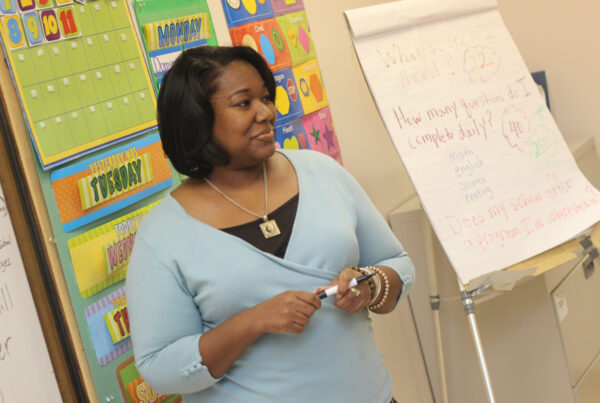Warning: This is disturbing information. But, you need to read it.
Many schools around the country are very fortunate in as much as they have funding available for positions that are dedicated to promoting sound family engagement practice in schools. The positions have various titles, parent engagement specialist, parent involvement specialist, family engagement coordinators, liaisons, etc. I have the pleasure of working with many of these fantastic people as I travel the country to workshops and events. I call them the family foot soldiers.
I usually start with an exercise that helps me understand better how I might assist these folks by garnering their thoughts on their role in their school and what others perceive their role to be. In this exercise, I ask them how they are perceived by their principal, the teachers in their building and by the families with which they work. The specific question I ask is: “What do you think (your principal, the teachers, parents) believes your role to be in the school? The answers, for the most part are very consistent, and honestly, quite disturbing. If there is any validity to the sample of parent involvement specialists that have answered this question (about 200 is my guess) then folks, we have a problem. A big problem.
Principal Perceptions
Generally speaking, parent specialists report that principals either don’t understand the position, don’t value or appreciate the position, or have a lack of awareness as to why the position exists and what is supposed to be accomplished. Often, the positions are funded centrally and “placed” in schools. Central office staff have a responsibility in this as well – they need to help principals understand the role and the goal of the position. Here are a sample of actual responses to the questions. I promise, I have tried to make this as balanced as possible. (It isn’t too balanced.)
- “My principal thinks my work with Title I is a waste of time and just busy work that is annoying.”
- “The two principals I work for do not value the role of a parent liaison. The principals see me as an extra body in school. They give us other duties which makes it hard to do your job.”
- “[The principal] thinks I am at the school to help with events and complete Title I documents to keep the money.”
- “My principal doesn’t think much of what I do.”
- “Principals feel our role is important because we provide families with workshops and resources.”
- “My principal supports my ideas and programs.”
- “My principal thinks that I am responsible for sending flyers home, getting volunteers, doing paperwork and getting free stuff.”
- “To deal with parents and their problems so the teachers don’t have to.”
- “I’m only valued when she [principal] needs something done.”
Can you imagine going to work every day and believing that your leader has placed no value on your contribution to the organization?
The vast majority of responses about principal perceptions of the job fall within these categories. I hope you find this as disturbing as I do. I have heard these complaints and concerns many, many times and I believe we have some education to do of our school leaders with regard to the importance of family engagement and if the school is lucky enough to have a dedicated position, what that position should be doing in the school.
I do recognize however, that these statements represent the perceptions of staff members assigned this role. I would offer then, that there may be a shorter road to a solution by sitting down and discussing this with the staff member and teacher leaders to ensure everyone understands the role.
Teacher Perceptions
The responses about teacher perceptions are actually worse. Teachers either don’t know what the position is supposed to do, or believe the position is some type of ombudsman to deal with problems that parents bring to the school. In some cases, parent liaison positions are treated as teacher aides and substitute teachers. Some teachers have articulated that the position is a waste of money, money better spent on classroom instruction. Here are some categorical examples of the perception of teacher understanding. (This was hard to balance.)
- “They [teachers] think that our jobs are not important, that the job is not needed in the school and that we are never busy.”
- “Teachers think I am a parent workshop provider, that I am the one to engage with parents (not them) and that I am an event planner.”
- “They think we are administrative staff. They think we are there to assist them with contacting parents for behavioralproblems.”
- “I am an extra body for field trips, covering classes and making copies.”
- “They think I do nothing.”
- “Some teachers value. Some can be confused when you are doing above and beyond? It can be a plus or a negative.”
- “Teachers think we are to break up disagreements between parents and teacher, resolve issues of parents.”
- “Some teachers, not many, are willingly working with me to engage families and see the good in it.”
It is imperative that we help teachers understand both what the role of the parent liaison is and more important that teachers STILL have an important role in family engagement. You cannot delegate this away to someone. It simply doesn’t work that way.
Family Perceptions
As you can imagine, families have a bit more positive outlook on the role and tend to rely on the liaison role more heavily, especially to navigate the complexities of the school. Interestingly, families can clearly see when these positions are underutilized and underappreciated. Some of the response categories suggest more work to be done to help families understand the role of parent liaison positions as well. A sampling of responses.
- “The parents are supportive and help with ideas. They will tell me if they don’t like something that is going on.”
- “Families think we are to help with financial crises like food and shelter.”
- “Families think that we as parent liaisons don’t care due to the results they receive from staff.”
- “Families think I am a better asset than most.”
- “Families think I do everything that is needed for their child’s success and their needs.”
- “Parents think that I am there to help them with parent-teacher conferences.”
- “Take pictures. Greet them. Ask for signatures. Give out information and pointless materials.”
- “They [parents] think I am available, dependable, hidden and under-utilized.”
So, what do we glean from this view into the world of parent liaisons? I cannot say with any accuracy that this is the norm in the field. What I can say is that anecdotally at least, I hear far more comments like the ones above than positive ones.
We need to ensure that our parent, family liaisons are supporting the school and families in positive ways. One of their best roles, in my view, is as a trainer of staff in family engagement. Too often, the job of “dealing with parents” is given to the parent involvement liaison or specialist. This just reinforces the notion in parents’ minds that the school doesn’t really care about the success of their child. The most important relationship is between the teacher, the child and the family. The facilitator can “facilitate” that relationship but should not become the surrogate.
If nothing else, hopefully this blog has encouraged you to action. If you are a principal, sit down with your parent liaison and understand fully what she or he has been charged to do. Work on ways that the liaison can help you build staff capacity in working with families. Engage teachers in the workshops and the work that the liaison is doing. Ensure that the staff hears from you, the principal, that this position is not an “extra body” to be pulled in for copies, lunch duty or to watch a class, as least not on a regular basis. (I get the occasional emergencies.) Work together with your parent involvement specialist, your staff leadership and your families to map out a positive and constructive plan that ultimately has one goal: to support the learning outcomes of all students.
If you have a great plan in place, I would love to hear it. Write to me at [email protected] I will feature your ideas in upcoming blogs to share your good work.
I would like to see this issue improve and need your help and insights to do it!



